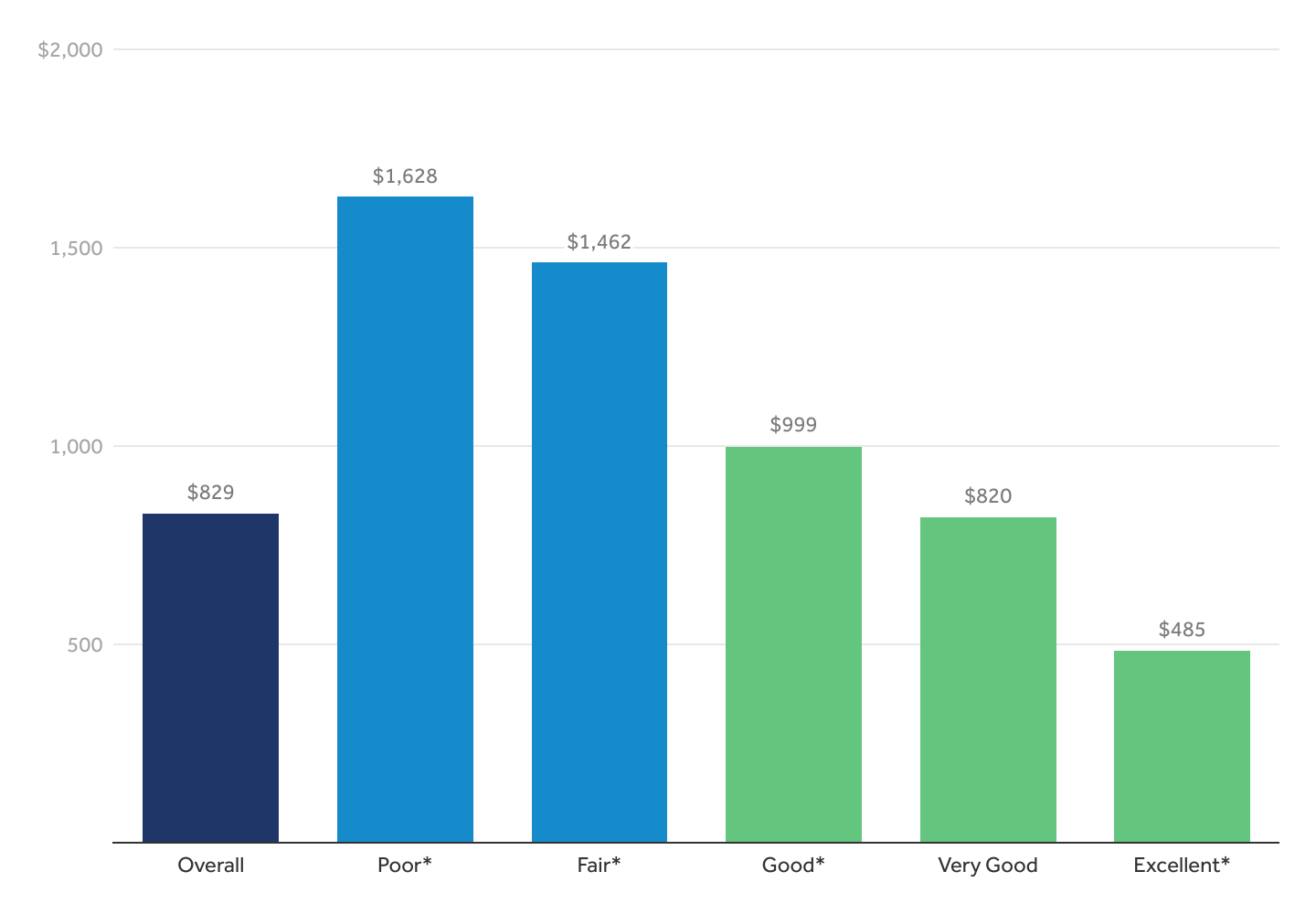Lesh
Diamond Member
- Dec 21, 2016
- 82,985
- 41,518
- 2,615
He did notYou said gas everywhere under 3.00 a gallon
Follow along with the video below to see how to install our site as a web app on your home screen.
Note: This feature may not be available in some browsers.
He did notYou said gas everywhere under 3.00 a gallon
In another thread he did dumbfuckHe did not
The quality of healthcare is exponentially worse than it was 15 years ago and you get to pay exponentially more.






The CBO originally estimated that Obamacare would cost $940 billion over ten years.
That cost has now been increased to $1.683 trillion.
Can you note these reductions and tax increases for us?
But the ACA’s remaining spending reductions and tax increases will more than offset the cost of its coverage expansions.
Lots of evidence to the contrary. For instance:

Fewer Patients Dying From Hospital Errors Since Obamacare Started
Report says about 87,000 lives have been saved since 2010.www.huffingtonpost.com

Out-of-hospital cardiac arrests fell under the Affordable Care Act
In Oregon, the rate of cardiac arrests happening outside of hospitals fell significantly after implementation of the Affordable Care Act and its expansion of health insurance coverage, researchers report.www.reuters.com

Medicaid Expansion Linked to Lower Infant Mortality
Is this a sign that the Affordable Care Act works?www.newsweek.com

Medical care, health have improved for low-income adults under ACA
The Affordable Care Act's health coverage expansions have produced major improvements in medical care and health for low-income adults, including reduced out-of-pocket spending, better access to primary care and preventive services, improved self-reported health, and improved care for those with...www.eurekalert.orgThe Affordable Care Act and Cancer Care Delivery - PMC
The Affordable Care Act (ACA) has reformed U.S. health care delivery through insurance coverage expansion, experiments in payment design, and funding for patient-centered clinical and health care delivery research. The impact on cancer care ...www.ncbi.nlm.nih.gov

Medicaid Expansion Linked to Lower Maternal Mortality Rates
A study presented at the AcademyHealth 2019 National Health Policy Conference, held February 4-5 in Washington, DC, found that the adoption of Medicaid expansion under the Affordable Care Act has been linked to lower rates of maternal mortality.www.ajmc.com

ACOs Improve Quality, Physician Burnout As New Opportunities Emerge | TechTarget
Accountable care organizations have helped advance value-based care by improving spending and quality and can be a potential solution to addressing physician burnout.revcycleintelligence.com
Not even close. The CBO score just before the ACA passed did predict it would raise spending by $938 billion over that first ten years (2010-19): $898 billion in Medicaid & CHIP spending above the baseline and new spending on marketplace subsidies + $40 billion in tax credits to help small employers buy insurance.
I'm not sure where the final spending on the small employer tax credit landed--I'm guessing south of $40 billion in that decade, but to be generous let's assume it came in at the expected $40 billion.
Meanwhile, Medicaid & CHIP spending above the pre-ACA baseline + new marketplace spending was not $898 billion after all. It was $273 billion.
Let that sink in. Medicaid & CHIP spending over that decade was more than $400 billion lower than expected, and spending on insurance int he new marketplaces was more than $200 billion less than expected.
In its first decade, coverage under the ACA cost more than $600 billion less than predicted.
You don't have to look further than the Medicare savings. The ACA's Medicare reforms were predicted to save about $500 billion over that first decade. Reducing Medicare spending to ~$500 billion below the pre-ACA baseline was needed to make the ACA slight-better-than-budget-neutral (it was predicted to reduce the deficit by ~$30 billion or so in its first decade). Actual Medicare spending over the 2010-19 period was more like $900 billion below the pre-ACA baseline.
So with its costs coming in ~$600 billion below projections and its savings coming in ~$400 billion above projections, the new revenues the ACA raised (of which there were some!) don't even matter. It undeniably reduced the deficit, way, way more than anyone predicted.
Interesting. My father passed away in July 2022 with Covid, my uncle died one month later. With Covid or at least that was what was on his death certificate. Thing is with my father I had to wear all the ppe at his death bed but with my uncle no such thing not even a mask.Lots of evidence to the contrary. For instance:

Fewer Patients Dying From Hospital Errors Since Obamacare Started
Report says about 87,000 lives have been saved since 2010.www.huffingtonpost.com

Out-of-hospital cardiac arrests fell under the Affordable Care Act
In Oregon, the rate of cardiac arrests happening outside of hospitals fell significantly after implementation of the Affordable Care Act and its expansion of health insurance coverage, researchers report.www.reuters.com

Medicaid Expansion Linked to Lower Infant Mortality
Is this a sign that the Affordable Care Act works?www.newsweek.com

Medical care, health have improved for low-income adults under ACA
The Affordable Care Act's health coverage expansions have produced major improvements in medical care and health for low-income adults, including reduced out-of-pocket spending, better access to primary care and preventive services, improved self-reported health, and improved care for those with...www.eurekalert.orgThe Affordable Care Act and Cancer Care Delivery - PMC
The Affordable Care Act (ACA) has reformed U.S. health care delivery through insurance coverage expansion, experiments in payment design, and funding for patient-centered clinical and health care delivery research. The impact on cancer care ...www.ncbi.nlm.nih.gov

Medicaid Expansion Linked to Lower Maternal Mortality Rates
A study presented at the AcademyHealth 2019 National Health Policy Conference, held February 4-5 in Washington, DC, found that the adoption of Medicaid expansion under the Affordable Care Act has been linked to lower rates of maternal mortality.www.ajmc.com

ACOs Improve Quality, Physician Burnout As New Opportunities Emerge | TechTarget
Accountable care organizations have helped advance value-based care by improving spending and quality and can be a potential solution to addressing physician burnout.revcycleintelligence.com
Not even close. The CBO score just before the ACA passed did predict it would raise spending by $938 billion over that first ten years (2010-19): $898 billion in Medicaid & CHIP spending above the baseline and new spending on marketplace subsidies + $40 billion in tax credits to help small employers buy insurance.
I'm not sure where the final spending on the small employer tax credit landed--I'm guessing south of $40 billion in that decade, but to be generous let's assume it came in at the expected $40 billion.
Meanwhile, Medicaid & CHIP spending above the pre-ACA baseline + new marketplace spending was not $898 billion after all. It was $273 billion.
Let that sink in. Medicaid & CHIP spending over that decade was more than $400 billion lower than expected, and spending on insurance int he new marketplaces was more than $200 billion less than expected.
In its first decade, coverage under the ACA cost more than $600 billion less than predicted.
You don't have to look further than the Medicare savings. The ACA's Medicare reforms were predicted to save about $500 billion over that first decade. Reducing Medicare spending to ~$500 billion below the pre-ACA baseline was needed to make the ACA slight-better-than-budget-neutral (it was predicted to reduce the deficit by ~$30 billion or so in its first decade). Actual Medicare spending over the 2010-19 period was more like $900 billion below the pre-ACA baseline.
So with its costs coming in ~$600 billion below projections and its savings coming in ~$400 billion above projections, the new revenues the ACA raised (of which there were some!) don't even matter. It undeniably reduced the deficit, way, way more than anyone predicted.
Proof?
Overall, the fiscal stress from federal health programs continues to grow while the need for fundamental reform gets more urgent.
We predict a $10 million increase in cost and it's only $6 million and you consider that a reduction.
A reduction in cost growth is a reduction. Indeed, it's the holy grail of all health policy. Health care cost growth plummeted to all-time lows after the ACA passed.
No it didn't.
It did. That's why the ACA was $600 billion cheaper than expected and Medicare cost $900 billion less than expected pre-ACA. The health care cost slowdown since 2010 has saved the nation trillions of dollars.
LOL, if you say so.
Obamacare has done jack shit about lowering our national healthcare costs.On March 23, 2010 Obama and a democratic House and Senate passed the ACA (Obamacare) 100% on party lines. Not one single Republican supported this plan. None. 58 Democratic Senators and 2 independents pushed the ACA through congress. The GOP issued doomsday warning of impending doom to our healthcare system. So where do we sit today?
- Zero increase in the out of pocket trend from ACA
- Zero increase in overall spending increase from ACA
- Historically low percentage of people uninsured
- Zero death panels are in place
- You can go to the doctor you want to go to
The GOP's dire warning regarding the Obamacare (ACA) have all ended up in the wasteland of unrealized fear mongering by people who only care about election, not service. Why would anyone support a group this wrong about everything? Tens of millions of lives improved with no corresponding economic downside.
OVERALL HEALTH CARE EXPENSES OVER TIME - Notice no change the to the trend line
View attachment 747265
OUT OF POCKET SPENDING OVER TIME - Notice no change ot the trend line
View attachment 747267
NUMBER OF UNINSURED AMERICANS - Notice all the lives positively impacted by legislation
View attachment 747269
Sources

U.S. national health expenditure per capita 1960-2022 | Statista
Per capita national health expenditures in the United States have increased significantly since 1960.www.statista.com

How Many Americans Are Uninsured?
Learn how many Americans are without health insurance. Explore the demographics of those who are uninsured, including variations by state, age, gender and race.www.moneygeek.com

Out-of-pocket spending - Peterson-KFF Health System Tracker
Country Comparison: Trend over time: By diagnosis: By race/ethnicity: By age: By sex: By insurance status: By health status: By amount, total population: Among people with large employer coverage, amount by setting: Among people with large employer coverage, distribution of cost-sharing by setting:www.healthsystemtracker.org

Same as before when?30 million uninsured, some number as before.
Obamacare has done jack shit about lowering our national healthcare costs.
How did the GOP let it happen?Obamacare is nothing more than a stepping stone to single payer healthcare. And the GOP let it happen.
Where are your facts health care costs plummeted?A reduction in cost growth is a reduction. Indeed, it's the holy grail of all health policy. Health care cost growth plummeted to all-time lows after the ACA passed.

Then you need to tell that to these people!It did. That's why the ACA was $600 billion cheaper than expected and Medicare cost $900 billion less than expected pre-ACA. The health care cost slowdown since 2010 has saved the nation trillions of dollars.

If you look at the line it’s gone up the same as it has been going up except 20M Americans are now covered. That’s an enormous win.Obamacare has done jack shit about lowering our national healthcare costs.
It was a bait-and-switch con job.
